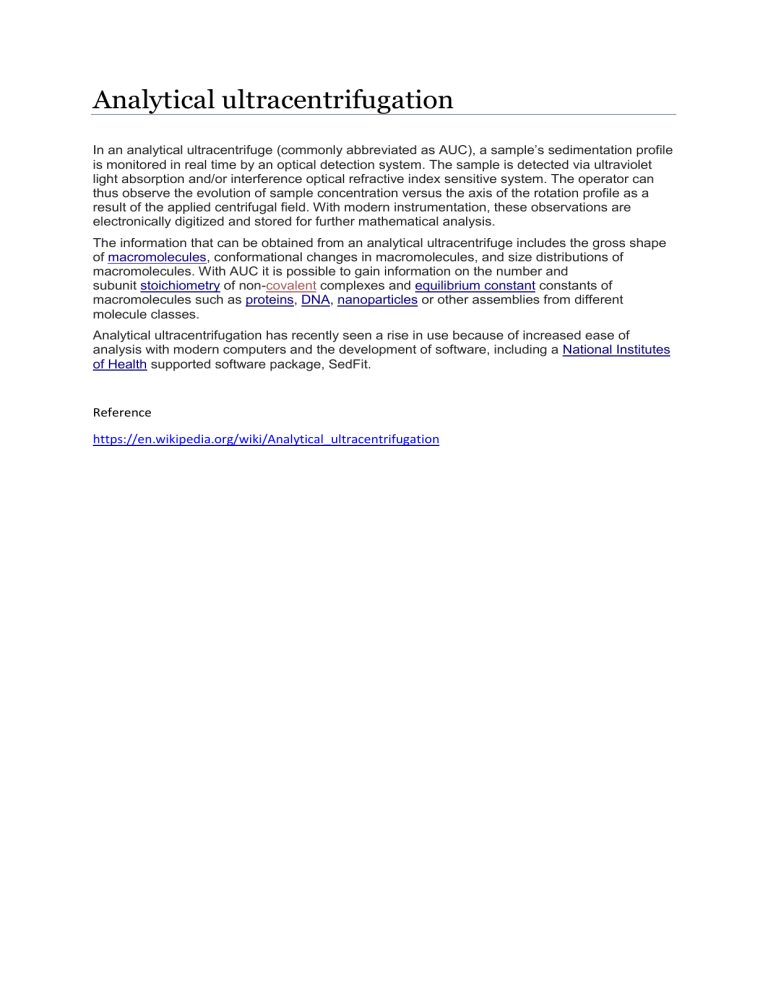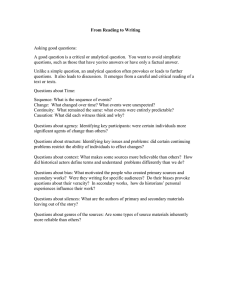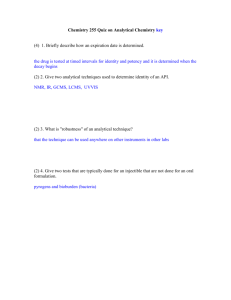Analytical Ultracentrifugation: Principles & Applications
advertisement

Analytical ultracentrifugation In an analytical ultracentrifuge (commonly abbreviated as AUC), a sample’s sedimentation profile is monitored in real time by an optical detection system. The sample is detected via ultraviolet light absorption and/or interference optical refractive index sensitive system. The operator can thus observe the evolution of sample concentration versus the axis of the rotation profile as a result of the applied centrifugal field. With modern instrumentation, these observations are electronically digitized and stored for further mathematical analysis. The information that can be obtained from an analytical ultracentrifuge includes the gross shape of macromolecules, conformational changes in macromolecules, and size distributions of macromolecules. With AUC it is possible to gain information on the number and subunit stoichiometry of non-covalent complexes and equilibrium constant constants of macromolecules such as proteins, DNA, nanoparticles or other assemblies from different molecule classes. Analytical ultracentrifugation has recently seen a rise in use because of increased ease of analysis with modern computers and the development of software, including a National Institutes of Health supported software package, SedFit. Reference https://en.wikipedia.org/wiki/Analytical_ultracentrifugation


